Science
Saint Joannicius of Devic (+ 1430)
15. December 2017 - 10:16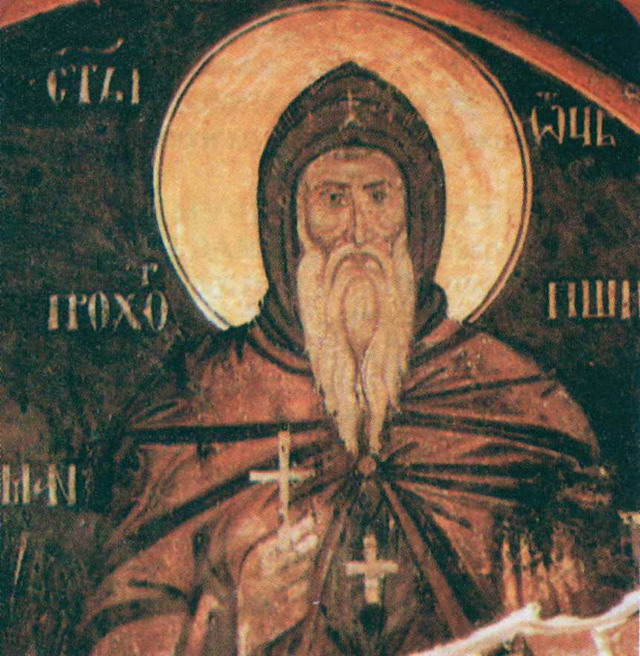 Commemorated on December 2 / December 15
Commemorated on December 2 / December 15
Joannicius was a Serb from Zeta. As a young man he was overhelmed with love for Christ. He left his home and family and withdrew to the region of Ibar at the mouth of the Black River into a narrow cave in which, according to tradition, before him, St. Peter of Korish lived a life of ascetism. When his fame began to spread among the people, he fled to Drenica and hid in the thick forest of Devich. Here St. Joannicius spent years of solitude, in silence and in prayer. According to tradition, the Serbian Prince George Brankovich brought his mentally ill daughter to him whom the Saint healed. Out of gratitude, George built a monastery on this spot, known today by the name of Devic. The holy and wonder-working relics of Joannicius repose in this monastery. In this monastery, more recently, the nun Euphemia, the famous and God-pleasing hermitess lived a life of ascetism in Devic. The nun Euphemia is better known in the area of Kosovo by the name: The Blessed Stojna. She died in the Lord in the year 1895 A.D.
Twenty-Six Sunday after Pentecost
6. December 2017 - 12:34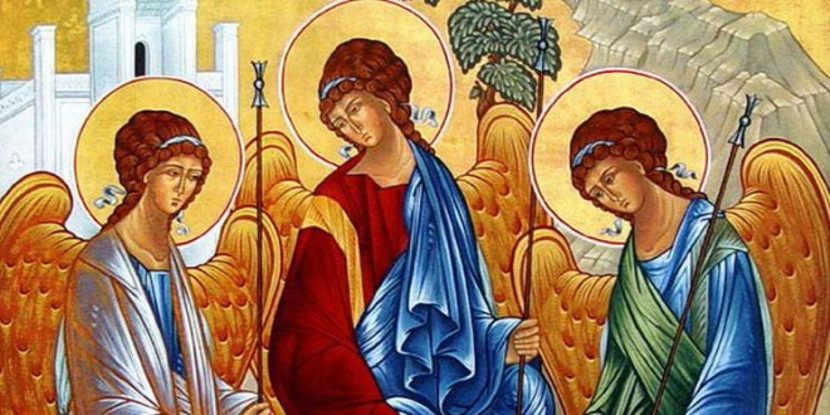 (Luke 12:16-21)
(Luke 12:16-21)
“AGAINST GREED AND ANXIETY”
Then He spoke a parable to them, saying: The ground of a certain rich man yielded plentifully. And he thought within himself, saying ‘What shall I do, since I have no room to store my crops?’ So he said, ‘I will do this: I will pull down my barns and build greater, and there I will store all my crops and my goods. And I will say to my soul, “ Soul, you have many goods laid up for many years; take your ease; eat, drink and be merry.” But God said to him, ‘Fool! This night your soul will be required of you. Then whose will those things be which you have provided?’ So is he who lays up treasure for himself, and is not rich towards God.”
The belief that material gain can save us from internal pain is put simply, a false utopia. Pain is present, without exemption, in all facets of our society. It doesn't depend on the worth of a person. What actually hurts is the state of one's spiritual being if left unattended, because man is created for eternity, yet lives in this world of musts where we are born, live and eventually die, and as such, man cannot escape suffering. That internal hurt cannot be soothed with worldly pleasures: food, drink and party. What comfort does one that is sentenced to death gain from eating, drinking and partying, if one witnesses death approaching? That is the state of life of all those that live without God. Aware of one's mortality and created state, and without a solution, such a person attempts to find relief in material and worldly pleasures. The human soul being God-like in nature becomes an immense burden for a non- believer, and by existing alone, without God, the soul becomes unbearable for such a person. That is exactly what happened to the rich man from this Gospel.
Holy, All-Praised Apostle Philip
27. November 2017 - 10:05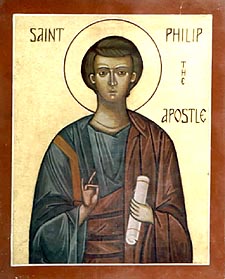 The Holy and All-praised Apostle Philip was a native of the city of Bethsaida in Galilee. He had a profound depth of knowledge of the Holy Scripture, and rightly discerning the meaning of the Old Testament prophecies, he awaited the coming of the Messiah. Through the call of the Savior (John 1:43), Philip followed Him. The Apostle Philip is spoken about several times in the Holy Gospel: he brought to Christ the Apostle Nathaniel (i.e. Bartholomew, April 22, June 30, and August 25. See John. 1:46). The Lord asks him where to buy bread for five thousand men (John. 6: 5-7). He brought certain of the Hellenized Jews wanting to see Jesus (John. 12:21-22); and finally, at the Last Supper he asked Christ to show them the Father (John. 14:8).
The Holy and All-praised Apostle Philip was a native of the city of Bethsaida in Galilee. He had a profound depth of knowledge of the Holy Scripture, and rightly discerning the meaning of the Old Testament prophecies, he awaited the coming of the Messiah. Through the call of the Savior (John 1:43), Philip followed Him. The Apostle Philip is spoken about several times in the Holy Gospel: he brought to Christ the Apostle Nathaniel (i.e. Bartholomew, April 22, June 30, and August 25. See John. 1:46). The Lord asks him where to buy bread for five thousand men (John. 6: 5-7). He brought certain of the Hellenized Jews wanting to see Jesus (John. 12:21-22); and finally, at the Last Supper he asked Christ to show them the Father (John. 14:8).
Venerable Nilus the Faster of Sinai
25. November 2017 - 22:53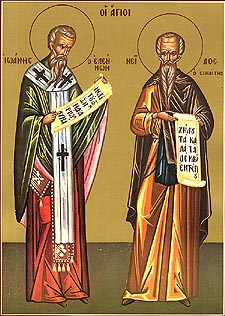 Saint Nilus the Faster of Sinai, a native of Constantinople. He lived during the fifth century and was a disciple of Saint John Chrysostom. Having received a fine education, the saint was appointed to the important post of prefect of the capital while still a young man. During this period, Nilus was married and had children, but the pomp of courtly life bothered the couple. Saint John Chrysostom exerted a tremendous influence upon their lives and their strivings. The spouses decided to separate and devote themselves to the monastic life.
Saint Nilus the Faster of Sinai, a native of Constantinople. He lived during the fifth century and was a disciple of Saint John Chrysostom. Having received a fine education, the saint was appointed to the important post of prefect of the capital while still a young man. During this period, Nilus was married and had children, but the pomp of courtly life bothered the couple. Saint John Chrysostom exerted a tremendous influence upon their lives and their strivings. The spouses decided to separate and devote themselves to the monastic life.
The wife and daughter of Nilus went to one of the women’s monasteries in Egypt, and Saint Nilus and his son Theodulus went to Sinai, where they settled in a cave dug out by their own hands. For forty years this cave served as the dwelling of Saint Nilus. By fasting, prayer and works, the monk attained a high degree of spiritual perfection. People began to come to him from every occupation and social rank from the emperor down to the farmer, and each found counsel and comfort from the saint.
Weekly Diocesan Bulletin - Sunday, November 26, 2017
24. November 2017 - 10:32 TWENTY-FIFTH SUNDAY AFTER PENTECOST: SAINT JOHN CHRYSOSTOM, ARCHBISHOP OF CONSTANTINOPLE
TWENTY-FIFTH SUNDAY AFTER PENTECOST: SAINT JOHN CHRYSOSTOM, ARCHBISHOP OF CONSTANTINOPLE
RESURRECTIONAL TROPARION - TONE EIGHT: Thou didst descend from on high, O Merciful One! Thou didst accept the three day burial to free us from our sufferings! O Lord, our Life and Resurrection: Glory to Thee!
The Holy Archangel Michael and all the Bodiless Powers of Heaven
20. November 2017 - 14:59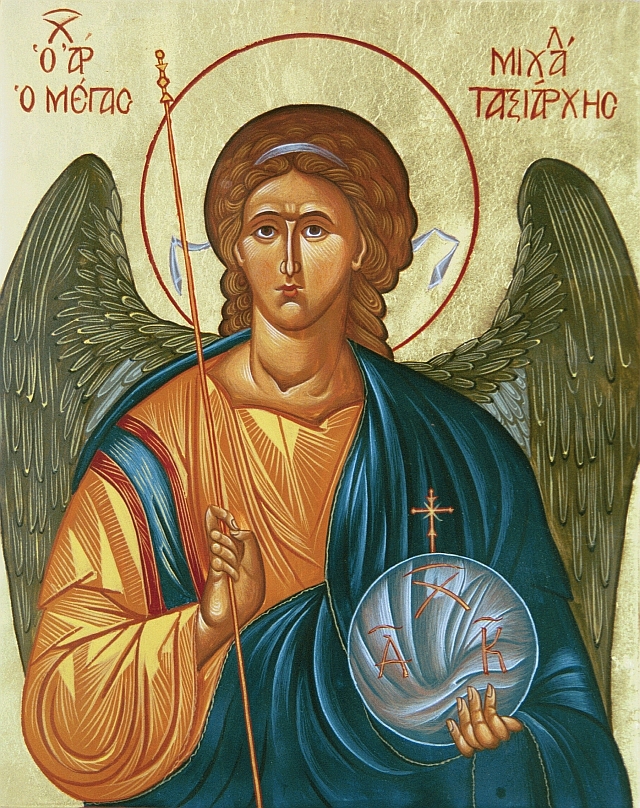 The angels of God were celebrated by men from earliest times but this celebration was often turned into the divinization of angels (IV Kings 23:5 [II Kgs KJV]). The heretics wove all sorts of fables concerning the angels. Some of them looked upon angels as gods; others, although they did not consider them gods, called them the creators of the whole visible world. The local Council of Laodicea (four or five years before the First Ecumenical Council) rejected the worship of angels as gods and established the proper veneration of angels in its Thirty-fifth Canon.
The angels of God were celebrated by men from earliest times but this celebration was often turned into the divinization of angels (IV Kings 23:5 [II Kgs KJV]). The heretics wove all sorts of fables concerning the angels. Some of them looked upon angels as gods; others, although they did not consider them gods, called them the creators of the whole visible world. The local Council of Laodicea (four or five years before the First Ecumenical Council) rejected the worship of angels as gods and established the proper veneration of angels in its Thirty-fifth Canon.
In the fourth century, during the time of Sylvester, Pope of Rome, and Alexander, Patriarch of Alexandria, the present Feast of Archangel Michael and all the other heavenly powers was instituted for celebration in the month of November. Why precisely in November? Because November is the ninth month after March, and March is considered to be the month in which the world was created. Also, as the ninth month after March, November was chosen for the nine orders of angels who were created first. St. Dionysius the Areopagite, a disciple of the Apostle Paul (who was taken up into the third heaven), described these nine orders of angels in his book, On the Celestial Hierarchies, as follows: six-winged Seraphim, many-eyed Cherubim, God-bearing Thrones, Dominions, Powers, Virtues, Principalities, Archangels, and Angels. The leader of all the angelic hosts is the Archangel Michael.

